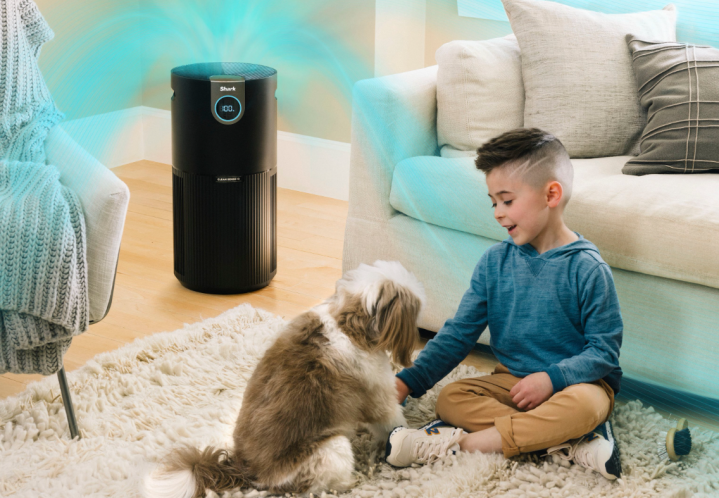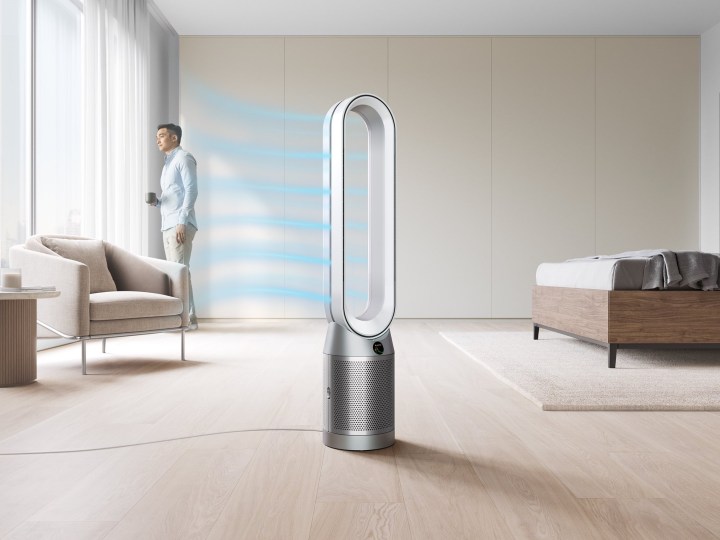While your traditional HVAC system can filter out dust, pollen, and other airborne particulates, sometimes it simply isn’t enough to keep your air as clean as you’d like. That’s where air purifiers come into play, as these secondary devices can be placed anywhere around your home to provide additional cleaning power.
They can also be incredibly helpful during wildfire season, as many claim to be able to filter out smoke and keep your air free of pollutants.
But do air purifiers work, and are they worth the hefty upfront investment? Here’s a closer look at air purifiers to help you decide if you should add one to your home.
How do air purifiers work?

There are several different types of air purifiers available in 2023, but they all follow the same basic principle. Air purifiers are designed to pull in air, trap any airborne particulates, then pump clean air back into your home. Many products use a combination of prefilters and HEPA filters to accomplish this task.
Prefilters are typically a permanent fixture of the air purifier designed to catch large airborne objects (such as pet fur) and can be washed when dirty. HEPA filters must be periodically replaced, but are specifically designed to capture tiny particulates such as dust, dander, and pollen.
A few air purifiers use ionizing technology, which creates electrical charges to remove airborne contaminants. The research on this process is mixed, however, so your best bet is to stick with the tried-and-trusted HEPA models.
What can air purifiers eliminate?

Air purifiers can eliminate tons of airborne particulates from your home. Performance varies by product, but here are some of the common contaminants targeted by air purifiers:
- Dust
- Pollen
- Smoke
- Viruses
- Pet Dander
- Bacteria
Keep in mind that air purifiers are often rated for a certain size room. Putting them in a room larger than intended will result in less-than-optimal cleaning, allowing some of the above contaminants to continue lingering in your home. Be sure to only use an air purifier that’s rated for your room — otherwise, it won’t perform as intended and could leave you exposed to nasty airborne matter.
Also, many air purifiers are now designed to work with multiple types of filters. This includes filters built by the manufacturer and third-party reproductions. Do your research before making a purchase, as some unofficial products may have quality issues or aren’t designed to filter out the same contaminants. When in doubt, stick with filters sold by the manufacturer of your air purifier.
Are air purifiers worth adding to your home?

Most households will find that air purifiers are worth the investment. This is especially true if anyone in your home has seasonal allergies or if you have furry friends running around your house. A reliable air purifier can be found for less than $250, with annual filter costs coming in at just under $100 for most brands.
To keep them working properly, routine maintenance is required– such as cleaning the prefilters and replacing HEPA filters. If you don’t do this, they won’t work as expected. You’ll also want to make sure you’re regularly changing your furnace filters and scheduling duct cleanings as needed, as air purifiers aren’t the only thing in your home responsible for your air quality.
Wildfire season is a particularly important time to keep tabs on your air purifier. Smoke will likely force you to change your HEPA filter more often than usual, so be sure to keep a few extras on hand in case they’re needed. Prefilter changes should also be performed more frequently.
If you need help starting your search, check out our list of the best air purifiers.
Editors’ Recommendations
Services Marketplace – Listings, Bookings & Reviews